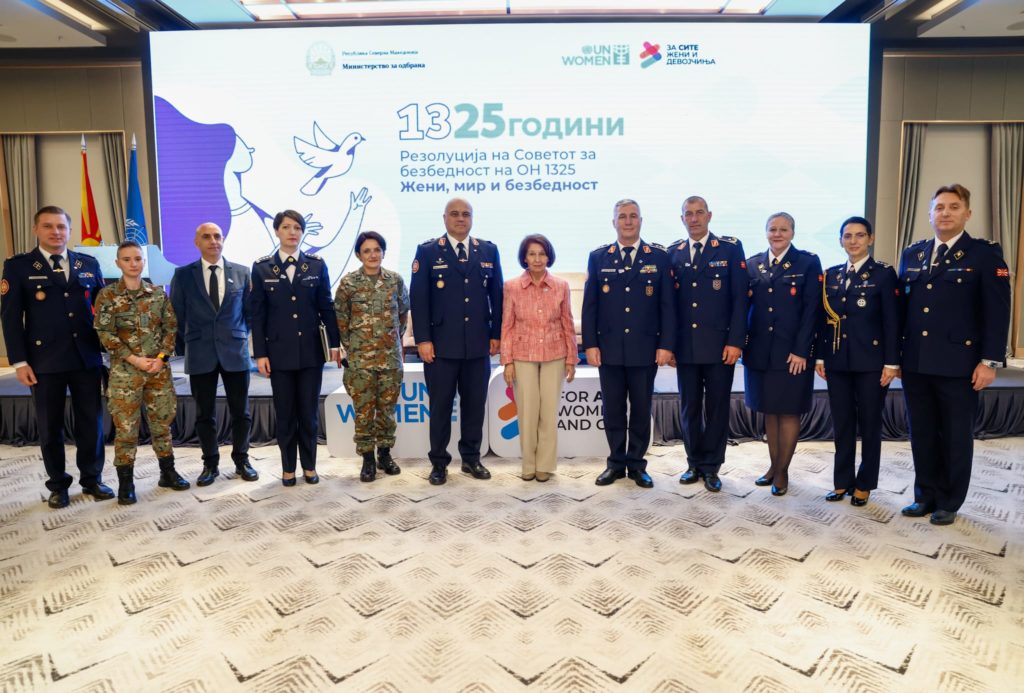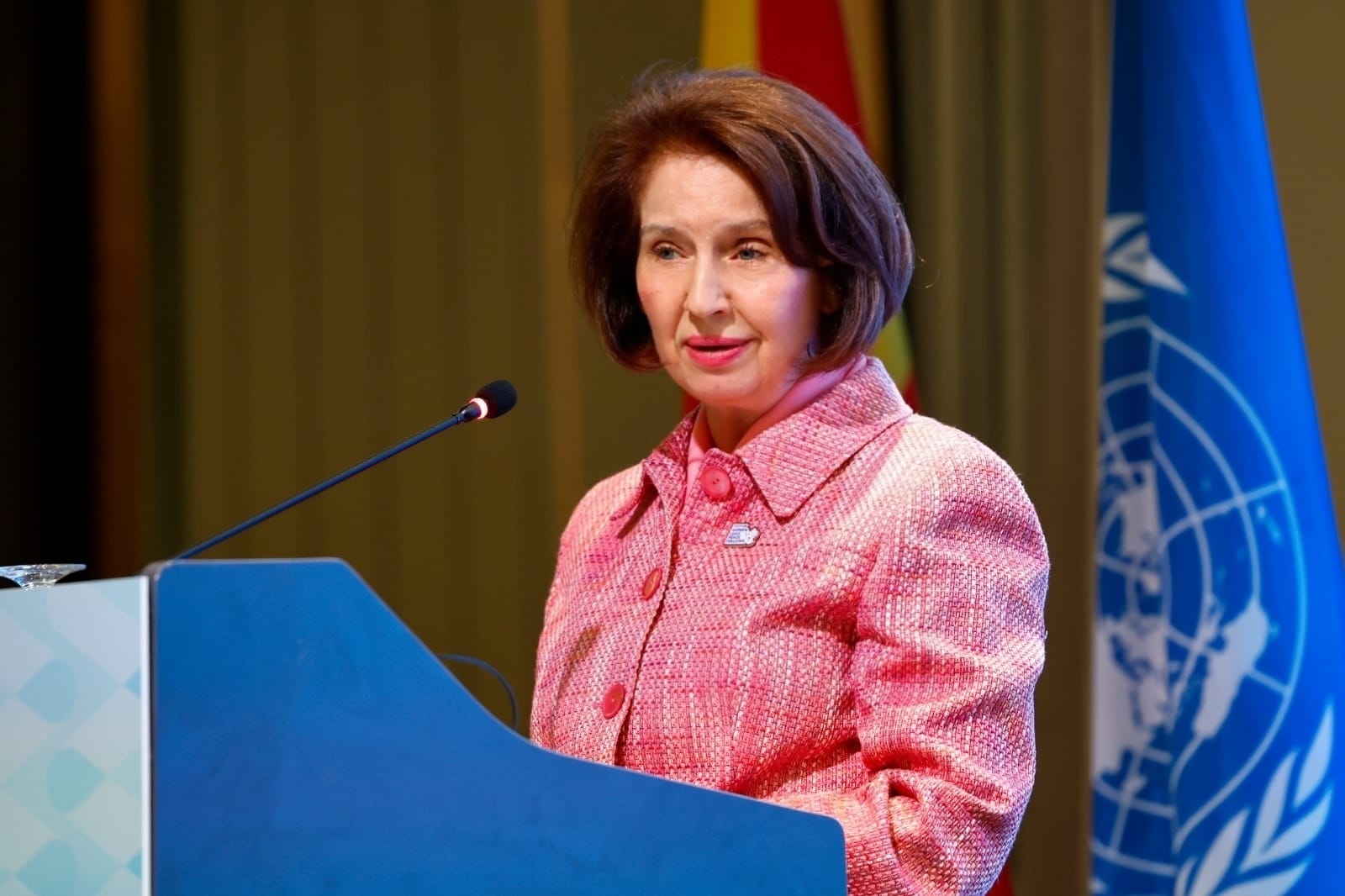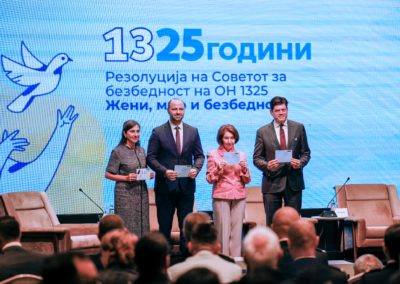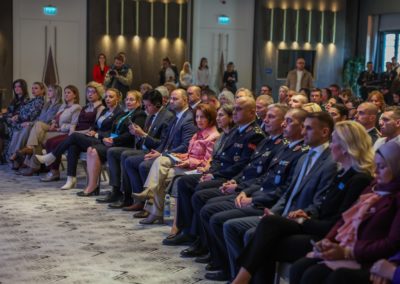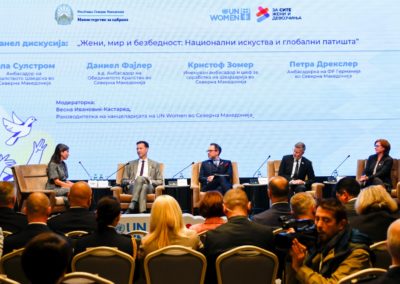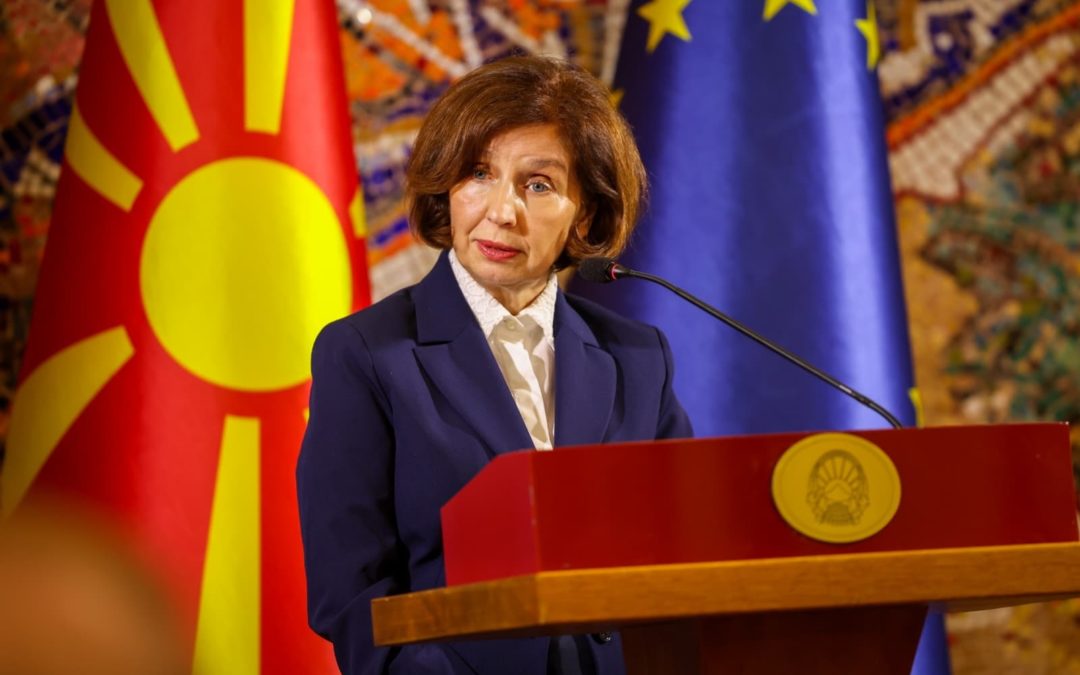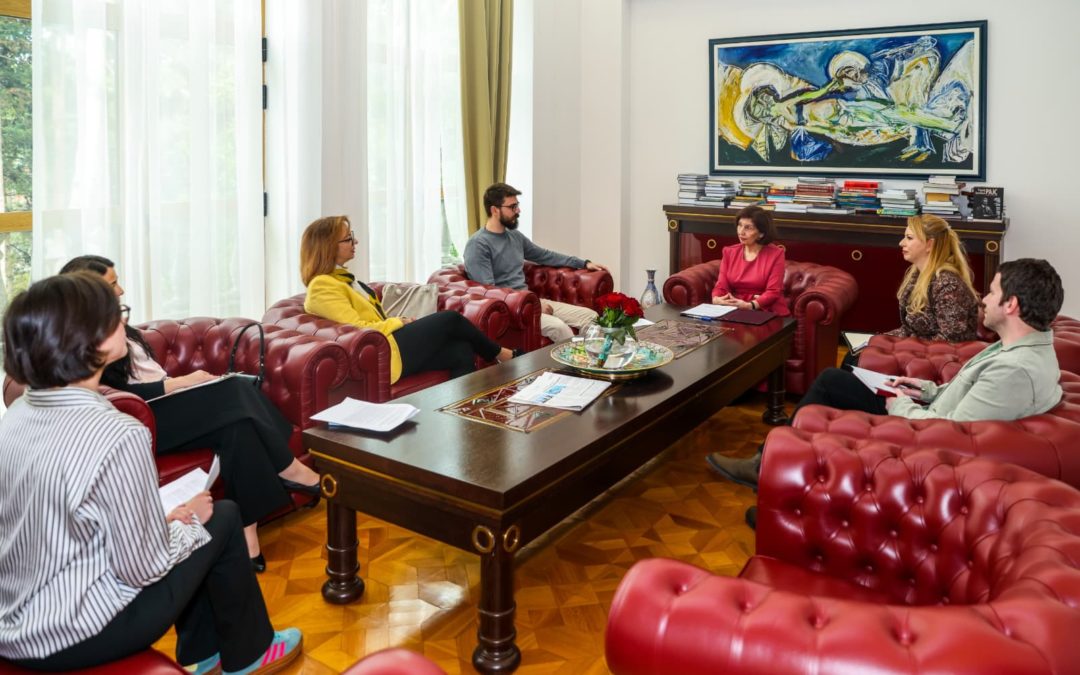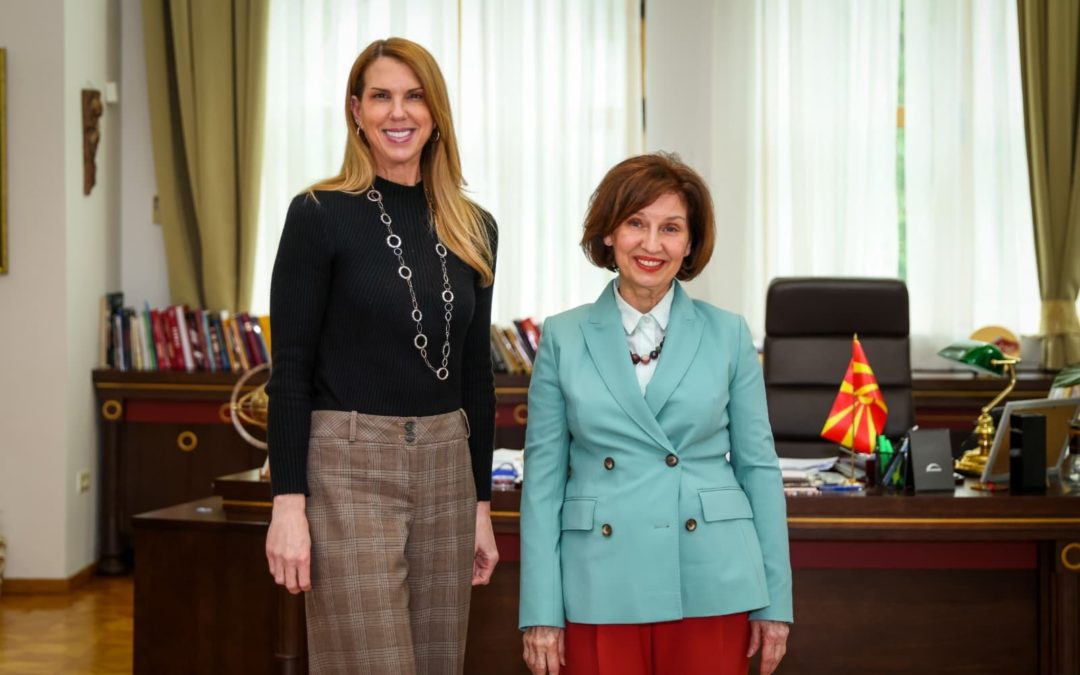President Gordana Siljanovska-Davkova addressed the conference today marking the 25th anniversary of the adoption of UN Security Council Resolution 1325, “Women, Peace and Security”.
Guided by reason and dialogue, as opposed to force and war, the Security Council established a new perception of women with the Resolution: from silent witnesses and victims of violence, they became active peacemakers
According to the President, the problem has not been solved either by this or by the dozen other resolutions because women and girls are still the most common and greatest victims of wars.
“War deprives females of human subjectivity, dehumanizes them and instrumentalizes them for military purposes”, she stressed.
In the peace negotiations, with only 7% participation last year, women have a symbolic role.
She warned of the unsustainability of the reality in which the male half of humanity possesses absolute power to decide on peace and war, and the female half – none.
Siljanovska-Davkova believes that it is high time to understand that gender equality is not a feminist privilege and female egocentrism, but a humanistic imperative, because violence and security are not female, but key social issues.
In addition to the President, the event was addressed by: Vlado Misajlovski, Minister of Defense; Michalis Rokas, Ambassador of the European Union; and Vesna Ivanovic-Kastared, Head of the UN Women Office.
The issuance of a post-stamp in honor of the 25th anniversary of UN Resolution 1325 “Women, Peace and Security” manifests a high democratic awareness of the importance of the active role of women in peace and security.
Below is the integral text of President Siljanovska-Davkova’s speech:
Distinguished Minister of Defense, Mr. Vlado Misajlovski,
Esteemed Ambassador of the European Union, Mr. Michalis Rokas,
Respected Chief of the General Staff, Sasko Lafciski,
Respected representatives of UN Women,
Dear guests,
Ladies and gentlemen,
Twenty-five years ago, the United Nations Security Council adopted Resolution 1325, a document that changed the perception of peace and security. It changed the perception of women, until then mostly silent witnesses or victims of conflicts, but since then – active peace actors.
This Resolution established two fundamental principles:
First – protection of women and girls from gender-based violence.
Second – their equal participation with men in the fight for peace and security.
Thus, the Security Council stood behind reason and dialogue, not behind force and war. Venus stood up against Mars.
Resolutions, although necessary, are not enough. Women are still the most common and greatest victims of conflicts. War deprives females of human subjectivity, dehumanizes them, and instrumentalizes them into an object of experience.
In formal peace processes, however, female participation is still symbolic, as evidenced by the fact that last year only 7% of negotiators were women. This is not an ordinary number, but a warning fact that the male half of humanity has enormous, that is, absolute power, and the female half – none. Let me remind you of Lord Acton’s warning that all power corrupts, and absolute power corrupts absolutely!
Bright examples are rare, yet inspiring: namely, women in some post-conflict societies led the reconciliation, restored the social fabric, connected the divided and opposed with the help of reason, knowledge, creativity and empathy, with emotional intelligence, acting in a healing and curative way, restoring trust and humanity.
It has been confirmed time and again that gender equality is not a feminist privilege and female egocentrism, but a humanistic imperative.
To deal with and overcome conflicts, it is not enough to sign a peace agreement, but rather it is necessary to change social relations, respect basic values and principles, abandon the relics of patriarchy and parochialism, and build a democratic culture of living. Women have the ability to transform the declarative into reality, through every day, active engagement in all walks of social life.
Traditional norms of excluding women from the decision-making processes are not a custom, but an injustice.
Violence and women’s safety are not “women’s issues”, but key social issues. Democracy is also measured and valued according to the attitude towards women, because women’s rights are human rights, the realization of which strengthens the democratic legitimacy and credibility of a political system. Inequality makes justice impossible, erodes peace and threatens the certainty of the future.
Distinguished attendees,
Let me remind you: The United Nations was created as a logical response to war and colonialism, i.e. as peace and anti-colonial project. We live in a dangerous, restless, sometimes warlike, sometimes post-war, sometimes pre-war time.
We, women, do not seek advantage, but recognition and use of our equal ability in the struggle for the common good.
The Women, Peace and Security Agenda does not call for mercy, but for reason and honor. It warns that these are unattainable in a social environment in which they are perceived and treated as a privilege of the stronger, rather than as a right of all states (large, small or medium-sized), of all nations (small or large), of all human beings.
Let us look at reality not only with our eyes, but also with our minds and hearts. Today, as we mark the 25th anniversary of the Women, Peace and Security Agenda and Resolution 1325, some seven hundred million women and girls live within a fifty-kilometer radius of conflict zones, the highest number in the last three decades! What kind of prosperity are we talking about, what kind of democracy are we lamenting for?
It is an open secret that structural and financial support for women, peacebuilders, is insufficient. We must recommit to the Women, Peace and Security Agenda, not ad hoc, not symbolically, but strategically and tactically. We must open peace fronts everywhere: in institutions, in education, in security structures, in the judiciary, in diplomatic missions.
Let us not allow “peace” to remain an empty, worn-out word that is mentioned only at conferences, because militarized discourse does not like it and rejects it. Let us incorporate it into everyday life, everywhere and always.
I would not be standing here, in front of you, if I did not believe that it is possible. I would not be with you, if I did not recognize peacemakers in you. Peace has been and will be superior to war, but we need to be louder, bolder and more dedicated to promoting the cause and vision of peace and to accomplishing the peace mission!
Thank you.
